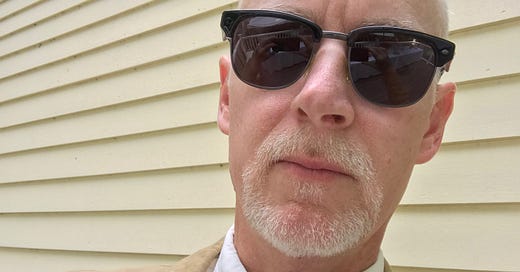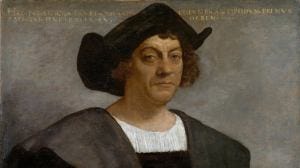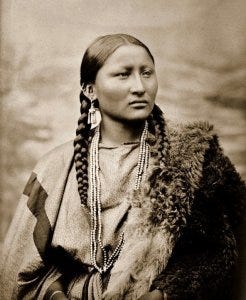Traditions, tribes, and the whole truth
First published in the Wakefield Daily Item, October 26, 2023.
The air is crisp. The leaves are turning. I breathe steam on my early morning walk with the dogs. It’s fall.
And it wouldn’t be fall without the Wakefield Daily Item’s annual commentary on Indigenous People’s Day potentially replacing Columbus Day, by Mark Sardella (“Happy traditional Columbus Day!” 10/12/23). All is right in Wakefield and the world.
Well, not all. Actually, according to Sardella, we’re going downhill fast. Still, he raises some worthy points. As a former editor of scholarly history books, I am grateful that he shines a light on the importance of history. As Winston Smith, the protagonist of George Orwell’s novel, 1984, so sagely noted: “Who controls the past controls the future: who controls the present controls the past.”
Sardella complains that “cancellers” are out to discredit and erase Christopher Columbus, unfairly imposing contemporary norms on the 15th century Italian explorer. He is right that this tendency towards anachronism is an inherent danger in our attempts to understand and make use of history, and we should try to avoid it. But it’s just as skewed to pretend that Columbus’ brutal actions toward Indigenous people (as well as Spanish colonists) were completely normal for his time. Even a quick reading of the extensive Wikipedia entry on Columbus shows that critiques of the man go well beyond a smattering of “woke” historians with an agenda.
What becomes clear on learning more is that it’s a complex picture: Columbus was a remarkable man who changed the world and also a cruel tyrant whose behavior was revolting, in his era and our own. Even the eminent historian Sardella cites, Samuel Eliot Morison, author of a Pulitzer Prize winning biography of Columbus, sees both sides, writing: “The cruel policy initiated by Columbus and pursued by his successors resulted in complete genocide.” The point is, both Columbus’ achievement as well as his flaws and misdeeds must be acknowledged to have a full understanding of the man and his impact.
Our esteemed columnist then goes on to plumb the murky depths of the woke mind, revealing: “the real reason that Columbus is reviled is because his discovery set in motion events that eventually resulted in the United States of America… It’s about delegitimizing the United States.”
Heavy stuff. According to this mindset, any questioning of a picture-postcard, whitebread, Norman Rockwell-esque national history means that you must hate America, and any critical history that highlights disturbing or ugly aspects of our past must intend to teach children to hate themselves, damaging their “social emotional wellness.”
Nothing could be further from the truth. Our Founding Fathers built self-critique into our national credo with the phrase “in Order to form a more perfect Union,” in the preamble to the Constitution. They were bold experimenters and they understood that we the people must continue to find ways to make the Union more perfect. This means looking back with clear eyes and acknowledging that we are not perfect, and honestly reckoning with our full and sometimes difficult history – including the history of slavery and the fact that those same founders owned slaves and held racist views; including the history of genocide and conquest of Indigenous people in America. This is not “dismantling,” as Mark contends; it is actually a part of the pain of healing and growing – there is no way we Americans can move forward together without this reckoning with the whole truth of our past.
If we truly love America and want it to be better in the decades and centuries ahead, we should all want to read Howard Zinn’s A Peoples History of the United States; we should all want to read The 1619 Project created by Nikole Hannah-Jones (and with many contributing authors); we should all want to read The Rediscovery of America: Native Peoples and the Unmaking of U.S. History, a finalist for the National Book Award this year, by Ned Blackhawk (Western Shoshone), professor of history at Yale University. Do these works change our view of American history? Absolutely. But if we’re secure and confident in our love of country, we embrace this change knowing that it only broadens and enriches our sense of who we are as Americans.
Finally, our intrepid traditionalist laments the taint on Columbus Day because it was created as a holiday to celebrate Italian-Americans – his own tribe – and it has come to mean a lot to this community. I get it. I love Italians! (I’m married to one.) Sardella recounts FDR’s creation of the holiday at a time when Italian-Americans were still newer immigrants, often facing discrimination. In light of this, it’s interesting that rather than responding with empathy and seeing Indigenous people as another “disadvantaged group” deserving of a holiday, he can only lash out against the “cancellers” and “revisionist historians” who, he is convinced, want to take away his holiday. Sad.
It doesn’t need to be this way. We don’t need to view the naming of a holiday in October as a battle for domination or as revenge for past injustice. Indigenous Americans, Italian-Americans – we are all Americans now. And it is up to us, in the present, to decide how to understand our history, and to decide whether and how to move forward together.
© Jeff Kehoe




